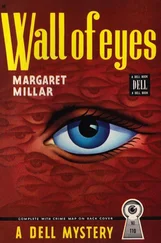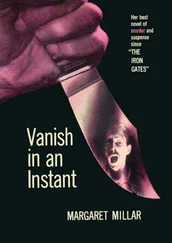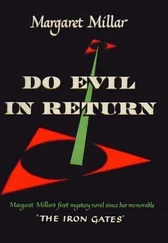“May I advise both counselors to have more than one witness available to take the stand — that is, either waiting in the corridor or at some nearby location. A good deal of time has been wasted this morning and this afternoon due to the absence of witnesses.” He tapped his gavel lightly. Wood on wood was barely audible over the other sounds invading the courtroom, traffic noises through the open window, and the babble of voices from the hall, where a docent was leading her group of tourists through the memorabilia of the city’s history, old wagons and cannons, display cases filled with arrowheads and shells from the kitchen midden embedded in cliffs along the shore, antique firearms and pictures. For the docent and her little troop, the courthouse was a place to relive what had happened, not to take part in what was happening behind every door with a lighted sign above it: QUIET, COURT IN SESSION.
The judge raised his voice. “We will adjourn until ten o’clock tomorrow morning. Spectators will please keep their seats until the jurors have departed. Jurors are admonished not to discuss or refer to these proceedings with anyone at all.”
When the Judge returned to his chambers, he stood for a minute staring at the picture on his desk of a stout brown-haired woman holding a stout brown-haired dachshund. Both looked content with each other and with themselves. They were nice people, these two, and he really hadn’t deserved either of them. But they had pretended not to be aware of this and tolerated him and made him happy.
He took off his robe and hung it in the closet, trying to figure out what Donnelly was up to. His failure to make an opening statement and the terseness of his cross-examination had the effect of making Owen’s presentation seem too verbose. Brevity was one of Donnelly’s favorite ploys, and juries on the whole appeared to like it, equating simplicity with truth. Truth, they thought, needed no varnish, the lily no gilding. They were wrong, of course. The truth sometimes required a great deal of elaboration, and he’d seen lilies that could have used at least a touch of gilding.
He put on his sports jacket and went out through the small reception room. Here his secretary, Krista, was on the telephone talking to her boyfriend, calling him sir so no one would catch on.
“Oh, yes, sir. Five o’clock, maybe a bit sooner, sir.”
The judge never indicated that he had caught on to the deception the second time he’d heard it. It seemed to give her an innocent pleasure, which he preferred not to spoil. She was, after all, a good-natured girl and not terribly incompetent.
She smiled and waved good-bye, but she didn’t hang up. The judge realized for the first time that she knew he knew and was somehow giving his blessing to her and sir. He thought, Dammit, I don’t even know sir. He might be a hardened criminal she had seen clanking down the corridor to his hearing. Their eyes met, it was love at first sight and she vowed to wait for him until he was paroled.
He opened the door, hesitated, then turned back to his secretary. “Krista, if you need advice in handling a personal problem, kindly do not come to me.”
“All right.”
“Consult a professional.”
“All right.”
“Or better still, handle it yourself. Do what you want to do, which is what you’re going to do anyway, advice or no advice.”
The fog stopped drifting in from the sea when it reached the foothills of the mountains. It was motionless now, pressing down on the city like a wet gray night, dripping from the lampposts of the parking lot and polishing the leather leaves of the fig tree, which dominated the landscape.
The fig tree had been there before the parking lot, before the cars, even before the courthouse itself. Its great roots reached out like the arms of an octopus, crumbling the surface, squeezing the asphalt into submission. Occasionally some impertinent upstart suggested removing the tree, but this idea was so contrary to the city’s policies that its author barely escaped a mob of protesters from such varied associations as the Chamber of Commerce, the Sierra Club, the Historical Society, the Chumash Indian Council and the downtown businessmen’s garden club.
The tree remained, generating a brisk business in shock absorbers.
The judge identified with the fig tree, in its age and strength and ability to make itself felt. Seeing new fissures appear in the pavement and grow wider each week gave him pleasure even though his rheumatic old Lincoln grumbled at the discomfort.
As he was about to turn into the street, he saw Donnelly standing beside a Mercedes coupé with a dented fender, talking to his investigator, Bill Gunther. Their heads were close together as if they wanted to be sure no one overheard their conversation, an unnecessary precaution since the fog smothered sounds like an acoustical curtain.
Gunther didn’t put much faith in acoustical curtains or anything else. Suspicion was an integral part of his nature and of his job. He was an ex-cop from Las Vegas, where suspicion hung low and thick over the roulette wheels and blackjack tables. In his present job he’d become very popular with the courthouse crowd. He told fat people they were getting thin and thin people they were putting on weight. He told pretty girls they were smart and smart girls they were pretty, watching with amusement the eagerness with which people swallowed an undeserved compliment.
Gunther and his boss had only one thing in common, work. Neither of them had time for or interest in cultivating close friends.
“The judge is coming,” Donnelly said. “Do you suppose we should try to look less intimate?”
“We have nothing to be intimate about. Have we?”
Judge Hazeltine, who was getting more and more farsighted as he aged, had seen the two heads together. The sight disturbed him, he didn’t know why. It was none of his business. They could carry their heads underneath their arms like the ghost of Anne Boleyn if they wanted to, and it would still be none of his business and violate no law that he knew about.
He guided his old Lincoln out into the street in the direction of home although the car could possibly have made the trip by itself after all these years.
Switching on the headlights, he half sang and half murmured the words of the old song:
With her head tucked underneath her arm
She walks the bloody tower...
In high school Charles Donnelly had been voted the boy most likely to succeed. In college he was the man most likely to succeed. In law school he was second in his graduation class and finally succeeded: He married a copper heiress. By anticipating the computer revolution, he turned a great deal of copper into gold, and a millionaire at thirty, he discovered that money bored him. He went back to the practice of law, specializing in criminal cases.
He enjoyed the challenge of pitting himself against the system, and his happiest hours were spent in the law library of the courthouse, checking back through previous trials and decisions, or sitting alone in his office planning and replanning a brief.
He often worked nights, sometimes with Bill Gunther, discussing cases with him and listening to the results of investigations Gunther was in the process of making for him.
It was through Gunther that he became acquainted with Cully King.
“A black man was booked for murder tonight,” Gunther said. “Did you hear about it?”
“No. Interesting?”
“Well, certainly not your usual stabbing in a barroom brawl. It was a drowning at sea.”
“Who was drowned?”
“Wife of an oil executive from Bakersfield.”
Gunther had a quiet voice which combined with his smooth pale skin and steel-rimmed glasses to give him a scholarly look that didn’t fit the image of an ex-cop from Las Vegas. He’d come to Santa Felicia to get away from the gambling which was a way of life in Las Vegas. Here, in Santa Felicia, he was confined to betting on horses, fights, football and basketball games and an occasional election. He still lost a lot but not as much, not so often.
Читать дальше
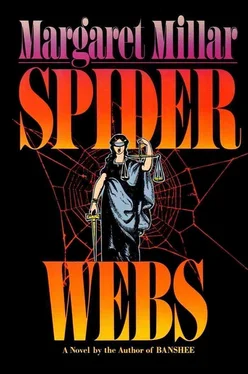

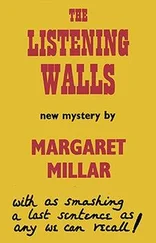
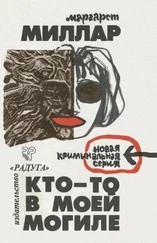
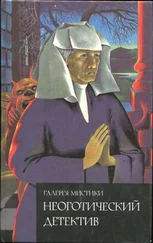
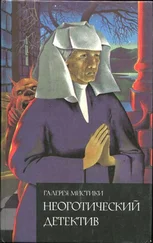

![Маргарет Миллар - Rose's Last Summer [= The Lively Corpse]](/books/384369/margaret-millar-rose-s-last-summer-the-lively-c-thumb.webp)
